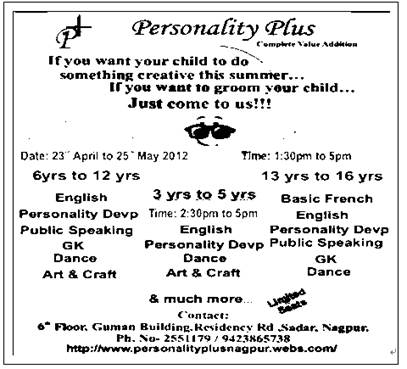网址:http://m.1010jiajiao.com/timu3_id_2404189[举报]
How do your parents get to work? Do they drive? If they do, you might try to 1 them to walk to work.
On May 16,2006,Du Shaozhong, deputy Director(副局长)of the Beijing Environment protection Bureau(环境保护局), didn't drive to work. 2 , he walked six kilometers to his office.
"This is to show my 3 for 'No Car Day ' ,"he told reporters.
The ' No Car Day' campaign asks Beijing drivers to leave their cars at home one day each month and walk to work.It also calls on Beijingers 4 cars on June 5,which is World Environment Day.The slogan 5 the day is: "If we don't drive for one day, we can have one more day of blue sky."
So far, more than 200,000 drivers have spoken in support of the campaign.
"We cannot control weather, 6 we can control when we drive," said Wu Zhonghua, a car club chairman.
Beijing had 238 "blue sky" days last year.A "blue sky day" is a day with good air quality.In 2005, the number 7 233.
However, a recent report suggests that Beijing had just 51 "blue sky" days in the first quarter this year.Much of the dust(灰尘) 8 the desert.But cars 9 most of Beijing's air pollution.
Beijing has more than 2.6 million cars.They make 3,600 tons of 10 each day.In 2006, the city stopped running 4,000 old polluting buses and 30,000 taxis.But more than 1,000 new cars go on the road each day.
1.A.get B.make C.keep D.let
2.A.Instead of B.Instead C.However D.Except
3.A.disagreement B.support C.policy D.treatment
4.A.not to use B.to not use C.don't use D.to use
5.A.to B.in C.of D.for
6.A.so B.although C.but D.and
7.A.is B.was C.are D.were
8.A.comes out of B.from C.comes from D.gives off
9.A.show B.influence C.lead D.cause
10.A.garbage B.pollution C.oil D.rubbish
查看习题详情和答案>>Mr. White is a farmer. Last month he 36 his truck to town and on the way his truck knocked down a 37 and hurt him. He sent the boy to a 38 at once. He paid a lot of money for that, but the boy’s 39 wanted to get more money from him. So they said their son could no longer lift his 40 arm above his head.
Mr. White’s lawyer(律师) came and asked the boy a few questions in the court(法庭). “Now, my boy,” he said, “you were hurt 41 , weren’t you?” “Yes, sir,” said the boy. “And you can’t lift your right arm now, can you?” “42 , sir.”
“Could you 43 us how you can lift your right arm?” Slowly the boy lifted his right arm before his nose. “Poor boy,” said the lawyer. “And how 44 could you lift it before the accident?” “Oh, very high,” said the boy proudly (自豪) and the arm went up right over his 45 .
|
1. |
|
|
2. |
|
|
3. |
|
|
4. |
|
|
5. |
|
|
6. |
|
|
7. |
|
|
8. |
|
|
9. |
|
|
10. |
|
查看习题详情和答案>>

小题1:The Summer Camp will last for _______.| A.two days | B.a month |
| C.more than a month | D.less than a month |
小题2:Who can join the Summer Camp?| A.Children over two years old. | B.Boys and their parents. |
| C.Girls over the age of 18. | D.All children aged 3-16. |
小题3:Which of the following courses are provided for the children of different ages?| A.Public Speaking, English, GK. |
| B.English, Basic French and Dance. |
| C.Dance, Art & Craft and Personality Devp. |
| D.Personality Devp, Dance and English. |
小题4:If you want to join the Summer Camp, you’d better _______.| A.book your seat as soon as possible because the seats are limited(有限的) |
| B.surf the webs as soon as possible |
| C.make a telephone call to them |
| D.email them as soon as possible |
小题5:From the poster of the summer camp, we know _______.| A.the camp is free of charge |
| B.children aged 3-5 have more courses |
| C.we can book the seats only in two ways |
| D.the summer camp has courses mainly in the afternoon |
| 阅读理解。 | ||||||||||||
| How do you get your pocket money, and how do you spend it? Let's see how different the answers from a Chinese boy and an Australian boy are: Li Meng, in Junior 2 at a middle school in Beijing and James Wardley, a secondary school boy in Melbourne, Australia Where do I get my money?
| ||||||||||||
| 1. James Wardley usually ______ for fun. | ||||||||||||
| A. buys cartoon books B. takes pictures C. goes to the cinemas D. reads newspapers | ||||||||||||
| 2. From the reading, we know that the Australian boy can get his money ______. | ||||||||||||
| A. by working himself B. from his parents C. by selling newspapers D. from his friends | ||||||||||||
| 3. James Wardley can save about ______ per week. | ||||||||||||
| A. $45 B. $50 C. $20 D. $15 | ||||||||||||
| 4. How much money can Li Meng get per month? | ||||||||||||
| A. ¥20 B. ¥40 C. ¥80 D. ¥l00 | ||||||||||||
| 5. Li Meng usually spends ______ yuan on phone bill. | ||||||||||||
| A. 15 B. 21 C. 50 D. 29 |
| 阅读理解。 | ||||||||||
| ||||||||||
Information card
|


